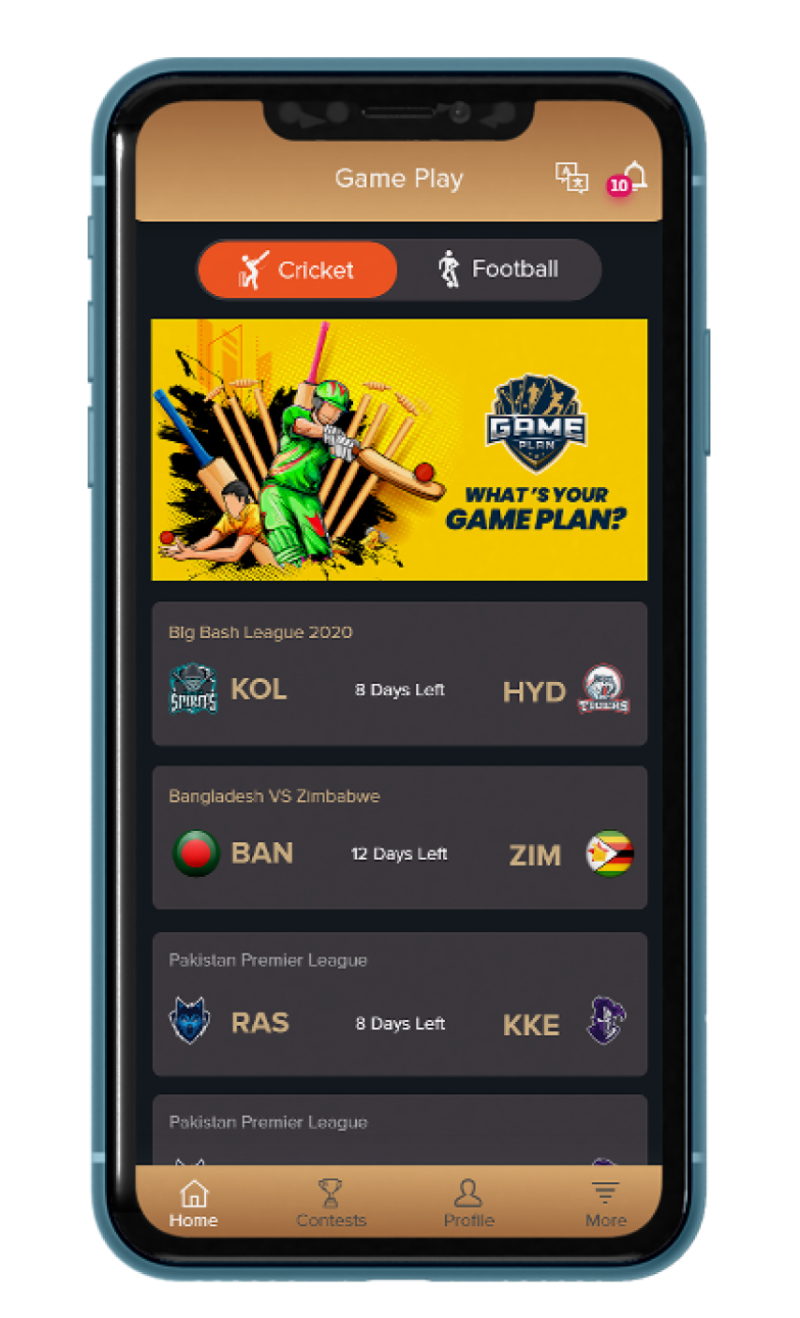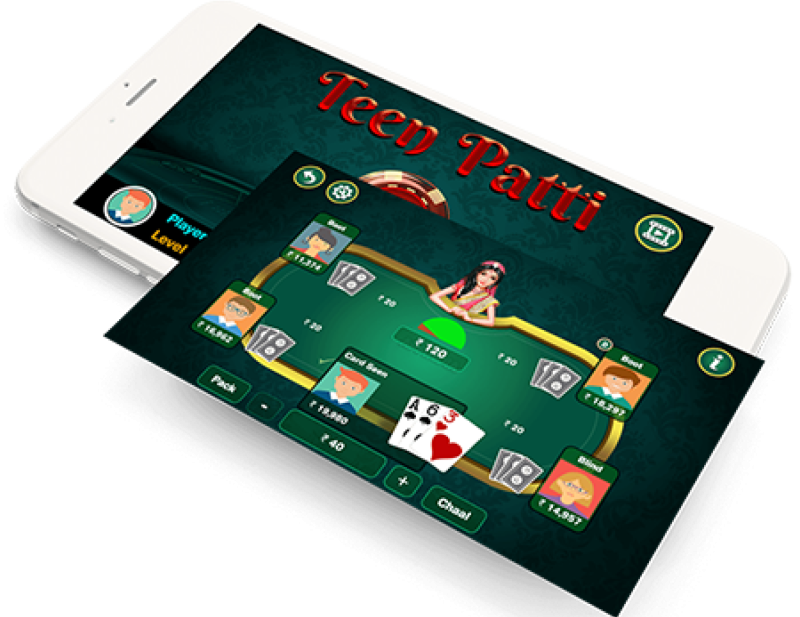Get in your inbox the latest News and Offers from
The Ultimate Handbook to Real Cash Gaming: Your Complete Roadmap.
- Blog Detail
- Home
The Ultimate Handbook to Real Cash Gaming: Your Complete Roadmap.
- 18 Nov, 2023
These games, often accessible through online platforms and mobile apps, offer not just entertainment but also the prospect of winning real money. Participation in these games often involves risks, and it's crucial to play responsibly and within your means. Additionally, regulations governing these games can vary significantly by region or country.
In a world increasingly governed by technology, the gaming industry has seen a remarkable evolution. One side that has gained immense popularity is real cash games. As the trend grows, understanding the landscape of real cash games becomes crucial for anyone intrigued by this blend of leisure and earning potential.
What is a Real Cash game?

Real cash games refer to games where participants can win or lose actual money. These games often involve betting or wagering with real money, and the outcomes determine the distribution of the money among the players. Examples include online poker, fantasy sports betting, casino games like slots or roulette played with real money stakes, and skill-based games where individuals compete against each other for cash prizes.
Categories of Real Cash game
Real cash games can encompass a wide variety of activities where participants can win or lose money based on their performance or luck. Here are some common categories:

- Card Games: Poker, blackjack, rummy, and other card games where players wager money based on the outcome of the game.
- Casino Games: Roulette, slots, craps, baccarat, and other games commonly found in casinos where bets are placed on specific outcomes.
- Sports Betting: Wagering on sports events or outcomes, such as football, basketball, horse racing, etc., where money is staked on predicted results.
- Fantasy Sports: Participating in fantasy leagues for various sports where users create imaginary teams and compete based on the statistical performance of real athletes.
- Skill-based Games: Games like fantasy sports, chess, eSports, or online multiplayer games where skill and strategy play a significant role in winning, and players can compete for money.
- Arcade Games: Some arcades and online platforms offer games where players can win money or prizes based on their performance, often combining elements of skill and chance.
- Lotteries: Buying tickets for chances to win cash prizes based on random drawings or numbers.
- Quiz and Trivia: Platforms or events where participants answer questions or engage in trivia competitions to win cash prizes.
Gambling vs Skill Based Game, which is more profitable?
In gambling, such as casino games or betting, the odds are typically in favor of the house. Over time, the house almost always has an edge, ensuring that, statistically, players will lose more than they win. This means that, in the long run, gambling tends to favor the house, and for most people, it's not a reliable way to make money.
On the other hand, skill-based games rely on the player's abilities rather than chance. Profits in skill-based games can depend on the player's level of expertise, strategy, and dedication to improving their skills. Some skill-based games offer the potential for consistent earnings, especially in competitive scenarios where the best players can win substantial rewards.
Ultimately, the profitability of either gambling or skill-based games can vary greatly from person to person. For most people, skill-based games may offer more control and the potential for consistent earnings, whereas gambling tends to be riskier and relies more on chance.
Game comes under gambling and skill based game
Games can often fall into a gray area between gambling and skill-based activities. In general, gambling games are typically those where the outcome is predominantly determined by chance rather than skill. Some examples include:
- Casino Games: Slots, roulette, craps, baccarat, and certain types of poker where luck plays a significant role.
- Lotteries: Scratch-off tickets, number draws, and other games where winning is largely based on chance.
- Bingo: Although some skill can help in tracking numbers, the outcome is primarily random.
- Sports Betting: Wagering on sports events where the outcome is unpredictable, although some people incorporate skill in their analysis of the games.
- On the other hand, skill-based games rely more on a player's abilities, strategies, and decisions rather than sheer luck. These games might include:
- Chess, Go, and other Board Games: Games where strategy and skill play a significant role in determining the outcome.
- Video Games: Certain video games, like strategy games, MOBAs (Multiplayer Online Battle Arenas), and first-person shooters, where skill, reflexes, and strategy are key to winning.
- Poker (to Some Extent): While poker has chance elements, skilled players can consistently win over the long term by using strategies and understanding the psychology of the game.
Development Cost of Gambling and Skill Based game
- Conceptualization and Planning: Outline your app's concept, target audience, key features, and unique selling points. Determine whether it's a gambling app, skill-based game, or a combination of both.
- Legal Considerations: Gambling apps often have legal regulations. Ensure compliance with local gambling laws and regulations. Seek legal advice if needed.
- Development Platform: Decide whether you want to develop a native app (iOS/Android), a web-based app, or a hybrid app.
- Development Tools and Resources: Explore app development platforms that offer templates, UI kits, or tools that suit your needs. These platforms might provide a starting point or resources to streamline development.
- UI/UX Design: Create wireframes, design the user interface, and focus on user experience. A captivating and user-friendly design is crucial for retaining users.
- Development Process: Either hire a development team or developers skilled in app development. The cost can vary based on complexity, features, and the hourly rates of developers.
- Testing: Thoroughly test your app for bugs, usability, and security vulnerabilities. User feedback during beta testing can be invaluable.
- Launch and Marketing: Plan the app launch strategy. Utilize various marketing channels to reach your target audience.
An average cost is Rs 3 lakhs, but it's essential to note that costs can vary significantly based on various factors like:
Complexity of the app
Features and functionalities
Development time
Developer rates and location
Design intricacies
Maintenance and updates
Explore meratemplate.com to build your app, it might offer a starting point, but the overall cost can fluctuate based on customization and additional features you might need for your specific app.

Conclusion
Real cash games offer a fusion of entertainment and the potential to earn money. Understanding the dynamics, legal implications, and responsible gaming practices is essential for anyone venturing into this realm. With careful consideration, skill development, and a mindful approach, real cash games can provide an enjoyable experience while minimizing risks.
Remember, creating a gambling or skill-based game app involves careful planning, adherence to legalities, and a keen focus on user experience.
Contact us: 8888647482
Email id: sunil@meratemplate.com
YouTube - https://www.youtube.com/c/MeraTemplate
Thank you so much for taking time to read my article.

_1700301342.png)